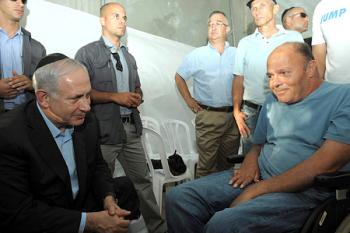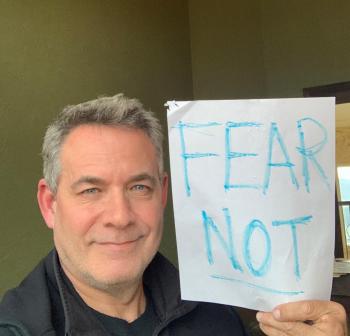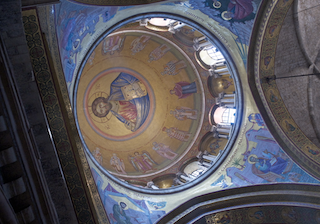In some sense, it’s like that night never ended. I can see commandos still spilling out of a transport plane, at midnight, in a far-off land. They are tense, but ready.
Near the shores of Uganda’s Lake Victoria, an Israeli rescue force had come to grab 100 Jewish hostages from the hands of desperate and vicious terrorists. A handful of Palestinian and German revolutionaries had hatched a plan to hijack a French airliner just after refueling in Athens.
All this out of the blue, a week from America’s Bicentennial. Israel in those days did not negotiate with terrorists, but in this case the pressure was so intense, they finally announced that that was what they would do. The government of Yitzhak Rabin had a real dilemma on its hands. Families of the hostages begged them to do anything necessary to bring their loved ones home. The 2,500-mile distance was a mitigating factor in sending a rescue force.
Or was it?
For any other country, a rescue attempt was unthinkable. The story of what happened next is so astonishing, I think of it often. It is like something out of the Bible.
Like Johnny Unitas executing a perfect pump fake, only to hit Raymond Berry deep for a touchdown, Israel publicly began a negotiations process. Behind the scenes, they threw together a daring rescue plan that was at once complex and simple.
Proposing to land a rescue force at the Entebbe Airport, IDF planners (under the watchful eye of Defense Minister Shimon Peres) felt that a crack team of 200 soldiers, including 30 members of their most elite counter-terrorism unit, Sayeret Matkal, could just possibly have the element of surprise. They were to land, drive a short distance to the terminal building where the hostages were kept, and engage the enemy while managing a stunned group of hostages.
That’s exactly what happened.
Within a space of five minutes, the rescue force landed, killed all the terrorists, and began loading disoriented passengers onto four C-130 transport planes. Eight hours later, the shadows of four planes caught the attention of Israelis going about their day. It was late in the afternoon, July 4, 1976.
I’ve never heard anything so incredible. Years ago, I had the pleasure and privilege of visiting with two members of the Entebbe force, one member of Sayeret Matkal (“The Unit”) and one member of the elite infantry brigade, Golani. It was this second soldier that I want to mention here.
Imagine you are a young man, college-age, and you will soon be mustered-out of your service in the IDF. Life’s highway is in front of you, as far as you can see.

So you volunteer for an operation so dangerous, it was considered a quasi-suicide mission. The force had actually come up with a contingency plan that, if things went awry on the ground, they would hack their way through the jungle to Kenya.
That plan wasn’t needed, because Plan A was so shockingly effective.
When I visited with Surin Hersko at his lovely home in Tel Aviv, I knew then and now that I was breathing rarified air. This man, now for 45 years, has been in a wheelchair. A quadriplegic since the night of the Entebbe raid, Hersko was wounded when he met a man on a flight of stairs; Surin raised his weapon to fire, the other man beat him to it. Shot through the neck, he fell back down the stairs. He was loaded onto the hospital transport.
The men who went with him that dangerous night, his comrades, know him still and revere him. As I do and we all should. Surin Hersko didn’t just help free a group of Jewish hostages. He kept the rest of us safe. He still does.
So long as men like this live, our enemies are afraid. Don’t think they aren’t.
I asked this articulate, thoughtful man some questions. My own voice halting, I asked him why he had done what he had done.
Why go?
“The people were in danger.” His piercing eyes were intimidating, in a wonderful sort of way.
He told me that the greenlight for the mission, from Rabin’s cabinet, was not given until the planes were in the air. Imagine that! You train for two days under cover of complete secrecy, you are asked to fly eight hours and upon landing, to immediately engage in combat.
This is so extraordinary, all my words here are wholly inadequate. They really are. You can read about it here, and watch a mesmerizing documentary here. Please, please see that you do.
Surin Hersko told me that when they received word that the government had indeed given them the greenlight, he was glad. “I wanted to go.” He then said to me, as he managed his time in the wheelchair, “I still remember what it feels like to be a soldier.”
It was like talking to Joshua, and Churchill, and Herzl—all in one. A Trinity of Leadership in one man.
I left that afternoon, emotional as a usually unemotional man. I thank God for Surin Hersko, and know that He watches over him, as He does all His people in the Land of Israel. They are eternal, I love them, and greatly look forward to the day when their enemies are no more. The Babylonians, Romans, Assyrians, Eichmann, Yasser Arafat, and so many others, are waiting for them.
I read a wonderful piece, from 2016, written by Tuvia Book, that gives a glimpse into the life of the remarkable Surin Hersko:
“A few summers ago, I was walking through the Old City of Jerusalem, leading a Birthright tour, when I noticed a slight man being pushed in a wheel chair. He had a beautiful smile on his face. Something seemed familiar about him. I suddenly recalled having seen a documentary film on the Entebbe rescue and remember that one of the commandos was severely wounded and ended up a paraplegic due to injuries he sustained during the rescue of the Israeli hostages. This individual in front of me reminded me of that injured soldier. When I approached him and asked him if he was Sorin Hershko, he was glad that I recognised him and was happy to chat with me. I was humbled to be standing in the presence of a genuine hero of the Jewish people, who had paid for his selfless courage by being confined to a wheel chair with 100% paralysis for the remainder of his life.
“Rather than succumbing to self-pity, Hershko co-founded LOTEM, a non-profit organization that now serves about 30,000 Israelis every year through a range of nature clubs and outdoor programs geared to children and adults with physical, communication and intellectual disorders, hearing and vision impairment.”
The will to do good, the will to perhaps see your own life extinguished, in order to help others…few of us will ever come to that moment.
Today, we live in a world of unreality, where lost youth question the truth of two human genders. Others make “deals” with murderous regimes, much like watching a person run headlong into a tunnel to meet an oncoming train. Too many simply coddle evil, hoping it won’t touch them.
And then there is Surin Hersko. A man of uncommon steel and valor. A man who makes the fiends and the morally weak in our world infinitesimal.
I salute you, Hero.

